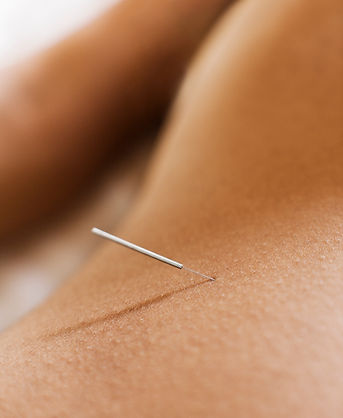List of services
#407 -1750 E 10th Ave, Vancouver V5N 5K4


Acupuncture
Acupuncture is a healing modality within Traditional Chinese medicine that has been practiced for over 2500 years. This approach is based on the theory that energy (chi) flows through and around your body along pathways called meridians. These pathways connect internal and external tissues. When illness occurs, blocks or unbalances form and affect your chi. Acupuncture is a way to regain the flow of chi and bring back balance.
Acupuncture is minimally invasive, safe, fast, and effective method to treat ailments. The World Health Organization has officially recognized acupuncture as an effective way of treating and healing many health ailments, including but not limited to stress, pain and chronic degenerative diseases.
Acupuncture involves the insertion of very fine, stainless needles at specific acupuncture points. According to this theory, qi (vital energy) and blood circulate in the body through a system of channels called meridians, connecting internal organs with external organs or tissues. By stimulating certain points of the body surface, the meridians are reached by needling or moxibustion and the flow of qi and blood can be regulated.


What can acupuncture treat?
Acupuncture can treat many ailments:
* Pain related issues: Sciatica, frozen shoulder, tennis elbow, carpal tunnel, arthritis, muscle weakness, paralysis
* Gastrointestinal: Poor appetite, fatigue, obesity, constipation, diarrhea, diabetes, acid reflux, stomach ache
* Cardiovascular: Chest pain, irregular heartbeat, high blood pressure, palpitation, stroke recovery
* Respiratory: Asthma, shortness of breath, allergy, sinusitis, common cold
* Urinary: Painful urination, incontinence, incomplete urination, night urination
* Urogenital: Infertility, PMS, irregular menstruation, menopausal syndrome, seminal emission
* Emotional health: Insomnia, anxiety, depression, over thinking, memory and concentration issues


What to expect
The practitioner first selects appropriate acupuncture points along different meridians based on the presenting health problems. Then very thin, sterile, stainless steel needles with the length of half to 3 inches are inserted into these acupoints.
The patient will typically experience a feeling of soreness, heaviness, numbness and distention. It is common for patients to find that in the short term after treatment, the symptoms may get worse before an improvement sets in.
Practitioners
Acupuncture may not be a good fit for people with some health conditions. The risk of bleeding or bruising increases if you have a bleeding disorder or are taking blood thinners (ex. Coumadin).
